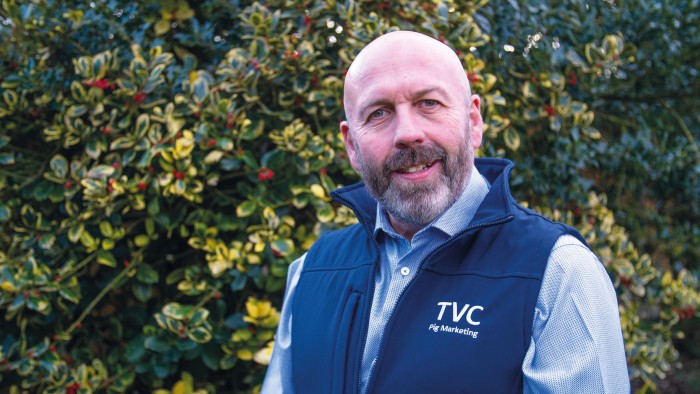Simon Davies who recently joined pig marketing company Thames Valley Cambac (TVC) sets out the challenges facing the agri-supply chain this year.
Currently, many sectors and individuals are balancing huge challenges and pressures, not least pig farmers who are questioning, now more than ever, where their value fits within the future of a supply chain currently being pushed to the limit.
Leaders and consumers need to be constantly reminded that farmers and supply chains are key workers and suppliers of our fuel and food, which has continued to be delivered during these unprecedented times.
Today’s challenges are further compounded for pig producers by rising costs and falling farm incomes. Without some balancing factors we will see more rapid pig sector rationalisation happening. This could well gain momentum when sow markets start to recover, which might take some time yet.
Even the more robust businesses will continue to find this road very bumpy unless the narrative becomes clearer – the truth is that further collaboration across the board is needed more now than ever.
Over a time when it seems we as consumers will have sensed very little change in basket prices, demand is reasonable, although the production workforce absences through the supply chain during Covid remains challenging.
Other key factors we shouldn’t lose focus on during these preoccupied times include industry age demographics, the buildings and skills shortage and the need to encourage more keen entrants and investors to see the sector as a real positive choice again, which it should be!
At a time of unprecedented political and global change, food is fundamental for everyone – when toilet rolls become consumers’ priority, it shows how people have become dependent on non-core products.
Leaders and influencers prioritise keeping food cost low, it now accounts for below 8% of disposable household incomes, allowing people to focus on the first half of this saying: “When people have food everything matters – when people haven’t got food, nothing else matters.”
Through working together on logical practical solutions, we might not ever experience the second half of the statement, but we mustn’t be complacent.
The pig industry has gone through much change – over the last five decades, our sow herd has dropped drop from around 1 million sows to around 400,000 – however, yields from the finished stock are around 25% higher today.
Farming has seen a huge dilution in consumer understanding of where and how our food is produced, as demonstrated by pig industry ambassadors engaging with schools and the public in recent times. On one occasion, a young teacher from an inner-city school asked in front of a primary class: “What part of the pig does lamb come from?’’ Scary!
This situation has been perpetuated by fast and plentiful food choices and attitudes contributing to today’s food availability and origins being overlooked at a cost.
I joined the pig industry more than 38 years ago as a very young man, before which I spent all my school holidays helping on the family farm, where my passion for the great outdoors and looking after animals was developed working alongside my Grandfather.
I still have a picture of him with an outdoor sow and litter in 1929, when he was only 19 years old. His key driver was foremost and humbly to provide for his family and then the local community.
His farming life spanned pre- and post war Britain over the time of food shortages, as our self-sufficiency levels became critically low, down to 30% at that time, highlighting our vulnerability should a challenge break out beyond the capability of leaders or government.
Today ‘local’ has extended to global to a much greater extent – however, it’s astonishing how much imported food was brought from New Zealand in wartime Britain.
Although most people today realise the importance of partnerships around the world, there is also real security and value for in all increasing our self-sufficiency levels in food production above the current level of just over half our requirements.
COVID has changed everyone’s outlooks in just over a year and brought more focus onto those we hold dear. In the future landscape for us all, and particularly for businesses facing massively increased pressures across the supply chain, pulling together must remain a fundamental key focus.
Joining with the TVC team, helping to continue to navigate through these tough times, is a privilege in further supporting our industry’s farmers, and continues my passion to provide that was passed onto me from my Grandfather.
I believe legacies are of huge importance – it’s of fundamental importance to us all that farmers prosper to provide and thrive.




